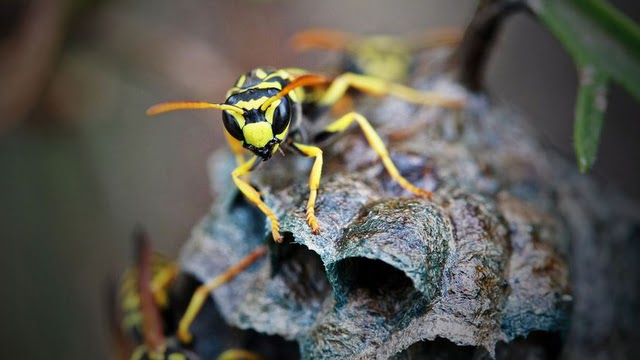Quck answer
Wasps are often seen as annoying and aggressive insects that serve no purpose other than to sting humans. However, these perceptions are largely unfounded and fail to recognize the important role wasps play in ecosystems. Wasps are pollinators, pest controllers, and serve as a food source for other animals. They are also crucial in maintaining balance in natural communities by controlling the populations of other insects. Despite their bad reputation, wasps are essential for maintaining the health and biodiversity of our planet. We need to shift our perspective on wasps and appreciate the valuable role they play in our environment.
Wild Animals

Despite their bad reputation, wasps are valuable pollinators and apex predators that kill crop pests. A study by scientists at University College London (UCL) suggests that wasps should be given the same recognition as bees for their contribution to the ecosystem. Social species like hornets and yellow jackets are often hated, but they play a crucial role in regulating insect populations. Wasps are rarely studied compared to bees, which receive targeted funding for research. This bias against wasps also fuels a cultural bias against them. Seirian Sumner, Ph.D. from UCL aims to change public perception of wasps by highlighting their importance in research and the ecosystem.
The Benefits of Wasps Beyond Their Sting
Wasps are not just pests that sting, they are also important pollinators. Unlike bees, wasps are generalists and will pollinate any flower. This makes them useful for urban farmers who lack flowery meadows for bees to pollinate. Wasps can be used as backup pollinators when bees are not available. Social wasps like hornets and yellowjackets, while only making up 1 percent of the 150,000 predatory wasp species, are the most likely to come into contact with humans due to the large number of worker wasps that can live in a single hive. However, their stings are not more painful or dangerous than honey bees’ and are not a threat to people without bee or wasp allergies. They can be kept in manmade box hives and moved around to support farmer’s crops, just like millions of beehives are shipped across the United States every year to pollinate almond orchards and pumpkin patches.
Predatory wasps are also effective regulators of pest populations. They will hunt down whatever insect is in abundance, but will not hunt them to local extinction when prey populations get lower. This means they are not a threat and could reduce the need for chemical pesticides to keep other insects at bay. However, wasp populations, like bees, are already being killed off by overuse of agricultural pesticides and more research is needed to understand the impact.
Changing the Perception of Wasps
The public’s perception of wasps can be improved by increasing scientific understanding of their benefits. Farmers and households would need to use more chemical pesticides without wasps, and the overuse of pesticides is already killing off wasp populations. Getting the word out about the good that wasps do could also help, starting with the media. Educating people on the usefulness of wasps can change their perception and reduce the number of wasps being killed.
Perhaps a catchy hashtag like #happyhornets or #waspwednesdays could help change people’s perception of wasps. In Japan, there is a traditional practice of tracking down wild yellowjacket nests and raising them in manmade hives to harvest larvae from the comb.
FAQ
1. Why do wasps have such a bad reputation?
Wasps are often associated with aggressive behavior and painful stings. This negative image is fueled by the fact that some wasp species are more likely to sting than others, and their stings can be particularly painful. Additionally, wasps are often seen as pests that ruin picnics and outdoor events. However, it’s important to remember that wasps are also important pollinators and predators that help control other insect populations.
2. How do wasps benefit the environment?
Wasps are important predators that help control populations of other insects, including caterpillars and aphids. They also play a role in pollination, helping to fertilize plants and ensure the growth of new ones. Some wasp species even act as decomposers, breaking down dead animals and plants and returning nutrients to the soil.
3. Are all wasps aggressive?
No, not all wasps are aggressive. While some species are known for their aggressive behavior, others are relatively docile and are unlikely to sting unless provoked. It’s important to remember that wasps will generally only sting if they feel threatened or if their nest is disturbed.
4. How can we coexist with wasps?
To coexist with wasps, it’s important to understand their behavior and respect their space. This means avoiding areas where wasps are known to nest, and taking precautions when working or playing outdoors. If a wasp nest is discovered, it’s best to contact a professional pest control service rather than attempting to remove the nest yourself.
5. What can we do to help protect wasp populations?
One of the easiest ways to help protect wasp populations is to provide them with a suitable habitat. This can be done by leaving areas of your yard or garden untouched, and by avoiding the use of pesticides that can harm wasps and other beneficial insects. Additionally, planting a variety of flowering plants can help attract wasps and provide them with a source of food.





Leave a Reply